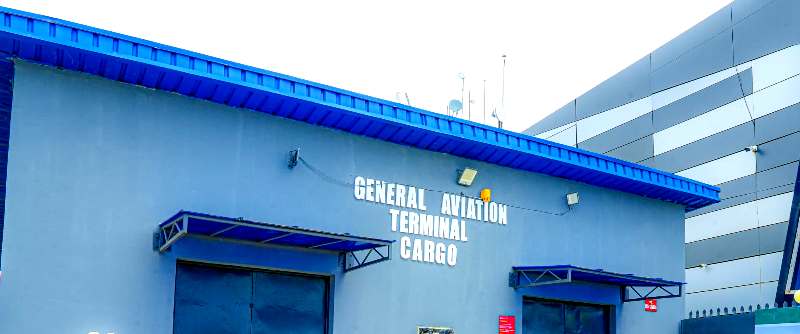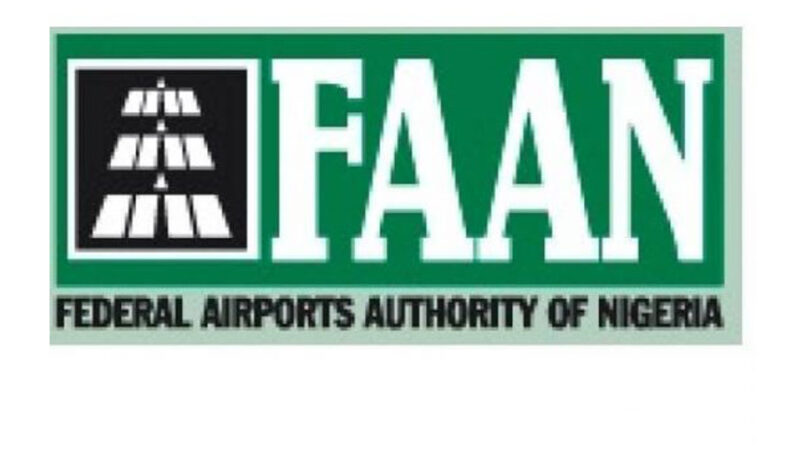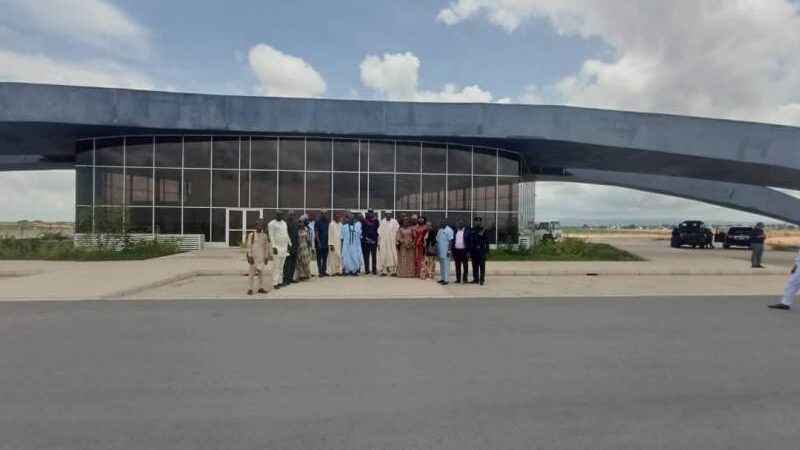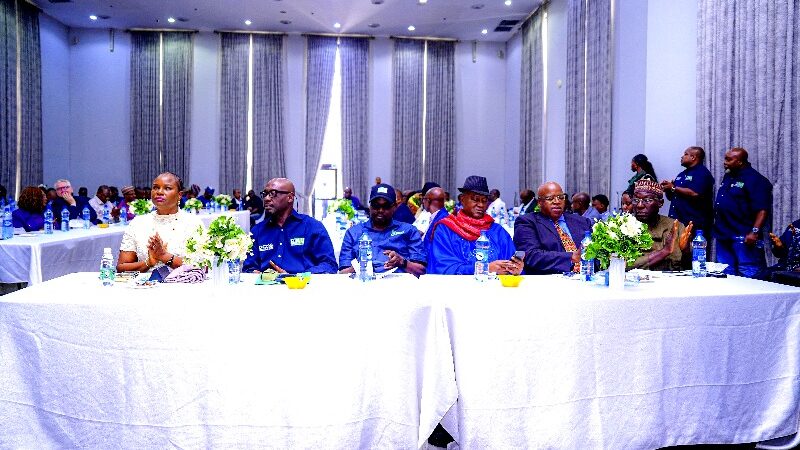Our ATOs Are Not Training Students Only For Local Airlines, Says Chairman

In this exclusive interview with AVIATION MONITOR, Mr. Bankole Bernard, Chairman of Association of Aviation Training Organizations (AATOs) in Nigeria and Managing Director of Lagos Aviation Academy (LAA) speaks on ATOs, the brain drain phenomenon and other issues related to aviation training in Africa.
1. INDIGENOUS AIRLINES ARE MERELY STRUGGLING TO SURVIVE IN WEST AFRICA. ARE THERE NO FEARS THAT THIS WILL AFFECT THE EFFORTS OF ATOs?
A: There are two ways to it. Are we training students to stay locally? No. We are not training students to stay locally because to the best of my knowledge, we have had students from the UK come to our ATO because it is a lot cheaper and because of the weaker currency to be trained. We have had students come from Ghana to Lagos to be trained. It tells you that the opportunities for our students are enormous because they don’t have to limit themselves to the local market. We make them understand that they can explore other avenues. As it is too, even the existing airlines, their staff are being poached by foreign airlines to come and join them. If their staff are being poached, it means that there will be vacancies everywhere. The vacancy will be there and they can only employ employable hands because it is not every ATO that has trained their students very well to be suitable for even the poaching. For instance, one of the critical things that we teach, apart from the practical thing for the students, is the customer service course to ensure that they know how to be polite to passengers. They know how to write their CVs, how to deal with their colleagues, how to deal with their employers. When we give them that kind of training, they are better qualified in the market place. That is what we do. So, if Nigeria carriers are struggling, we are not limiting ourselves to them alone. We are believing that these students can be exported to other countries that need their services as long as they are employable.
2. ON THE BRAIN DRAIN CHALLENGE, SOME AVIATION STAKEHOLDERS HAVE ADVOCATED THAT RATHER THAN AFRICANS COMPLAIN ABOUT MASSIVE RECRUITMENT OF PROFESSIONALS FROM AFRICA BY AIRLINES IN ASIA, MIDDLE EAST, AND SO ON, THE TREND SHOULD BE SEEN AS AN OPPORTUNITY FOR AFRICAN TRAINING SCHOOLS TO PRODUCE MORE FOR EXPORT. WHAT IS YOUR VIEW ABOUT THIS?
A: In every situation, you are faced with a challenge and opportunity. If all you see are challenges, we wish you all the best. What we see are opportunities. Opportunities are what prevail when you think outside the box that you can actually provide your service to other people outside the shores of your country. These students can be exported. There is nothing wrong with that. The world has become a global village. This means anybody can work from anywhere. You can live anywhere. So, we should stop crying over this “japa” thing. As a matter of fact, one of the things we should be celebrating is the fact that our people are capable to be employed outside. I can say to you for a fact that in the Philippines, they export their citizens to go and work in other countries and their citizens are able to remit money home. Not only that they are able to remit money home, the government trains them and ensures that they are of best behaviour because they are representatives of the country wherever they go. So, the question is: “What is government’s involvement in ensuring that our citizen students that are being exported to other parts of the world, are of best behaviour and that they are adding value to the bottomline of their country, who is their host?”. If all these things are put in place by policies, by training, things will become a lot better. It is a matter of, are we seeing the opportunities or seeing the challenges? But here in LAA, we only see opportunities.
3. IN NIGERIA AND GHANA, THERE ARE FLYING SCHOOLS FOR TRAINING VARIOUS CATEGORIES OF AVIATION PROFESSIONALS FROM ACROSS WEST AFRICA. WHAT WOULD YOU SAY ABOUT THE PATRONAGE OF THESE INSTITUTIONS AND RESPONSE IN TERMS OF INTEREST IN ENROLLMENT, ESPECIALLY BY YOUNG PEOPLE?
A: I will say that this aspect of the industry which relates with training has not been given enough advocacy and awareness. When you look at our industry where you need to groom people to be in aviation, its always good to catch them at the tender age. For instance, in Nigeria, to work as a cabin crew, all you need is your school certificate, which means that you are catching them young so that they will have been properly trained and they would have gained mileage before they get to their ripe age. For Nigeria, when you talk about aviation training organizations, they are very few. The government is not doing so much about it. Because the government has established Nigerian College of Aviation Technology (NCAT), they believe that they have fulfilled the mandate and we have International Aviation College (IAC), Ilorin which was equally established by the state government. The rest are privately owned training organisations. The question now is this. What support is coming from the government in terms of policy, in terms of awareness, in terms of ensuring you expand the scope of this particular sector? Those things are not there and until we start to create the kind of awareness that will reposition the ATOs, its not something that will be done. Remember that in Nigeria, over 60% of the population are youths. So, if they are youths, what is the government doing in that regard to say, let us make the youths realize that there are other opportunities they can embrace other than everybody saying they want to go to the university?
4. HOW SATISFIED ARE YOU WITH THE REGULATION OF AVIATION TRAINING ORGANIZATIONS IN NIGERIA?
A: I think to a very large extent, the government has done very well under the purview of NCAA. You know, it is one of the areas that ICAO looks at-personnel training in the industry. So, they are not willing to compromise in any way or any manner. If your ATO is not up to standards, you will not be approved. They also do periodic checks on these ATOs to ensure that the students are being taught within the guidelines of what NCAA has provided also. After we have done all that, there is still a test that is being carried out by NCAA on these students to ensure that they are fit for employment even outside the country. In putting all that together, I honestly think that the government has done well. The government just needs to create awareness in terms of letting the young populace in the country know that there are opportunities.
5. AS AN ATO IN NIGERIA, WHAT WOULD YOU SAY ARE SOME OF THE CHALLENGES YOU FACE?
A: Well, for me it has always been a case of not focusing on challenges but opportunities because every time you talk about challenges, it brings out opportunities. For instance, the challenge here now is that there is no enough awareness. If it becomes something that government decides to embark on, it means more ATOs will come in. So, that is an opportunity. Another opportunity is that more youths will come into the industry. So, rather than just see the challenges in the ATOs, Yes, the cost of putting up a nice ATO is not cheap. They want to make sure that it is of international standard and you want to make sure that you have continuity plan so you don’t have to close up and you want to make sure that you have facilitators on ground to be able to serve the students that you are bringing in. Because again, you don’t want a situation that your facilitators will be hijacked if they travelled out of the country. If they go like that, the students will suffer because there wouldn’t be anybody to take them. So, those are part of the challenges that basically occur but we try as much as possible to see how we keep our facilitators so we don’t lose them
6. ETHIOPIAN AVIATION ACADEMY GRADUATED OVER 2,500 AVIATION PROFESSIONALS BETWEEN AUGUST 2023 AND JUNE 2024 (10 MONTHS). THAT IS MASSIVE PRODUCTION. WHAT DO YOU THINK AVIATION AUTHORITIES IN WEST AFRICA NEED TO DO TO WORK TOWARDS ACHIEVING SUCH FEAT IN THEIR COUNTRIES?
A: Ethiopian airlines is an airline that is number one airline in Africa as it stands today and they have been able to carve a niche for themselves in the aviation sector by ensuring that they made their country a sort of hub in Africa. Ethiopian Airlines today flies globally to every nook and cranny in the world. For such organization, knowing the challenges we have in Africa, they have ignited what we call their Business Continuity Plan (BCP). They want to ensure that as much as young people are leaving the continent to go to other continents, it does not affect their operations. So, training has now become part of their business to ensure that whatever vacancy that can occur in their line of business, they can easily fill it up. That is an organization that knows what it is doing. That is a government that recons with the business that affects their nation. They know that if they don’t ignite their BCP which is recruit and train as many people as possible to fill up any vacancy that they might possibly need to fill, and probably sell those people to other parts of Africa, they would just be wasting their time. That is one airline of a country that is serious about aviation.. Now, how many African countries will replicate what Ethiopian airlines is doing? If they can replicate it, Nigeria and the rest of Africa will become a place that the rest of the world will run to so as to pick manpower just the way they are picking manpower in other fields of human endeavour.
7. WHERE DO YOU SEE LAA IN THE NEXT FIVE YEARS?
Well, we are hoping that we can expand our scope beyond what it is. I am equally aware that the government is looking at a situation where an additional government approved ATO can be established because when you look at it, in the whole of Nigeria, aside NCAT, there is no ATO that you find around,. I know that government approved an ATO in Abuja. There is no ATO in the South here. So, there has to be a balance. Aside from what government is doing, we are hoping that we continue to expand our horizon. I know where we were five years ago and between that five years ago and now, we have expanded from our four classrooms to eight bigger classrooms and doing courses concurrently. So, we see us being able to double what we have now. Maybe we look forward to opening another office of our ATO on the Island to be able to take care of youths coming from that axis.AM






